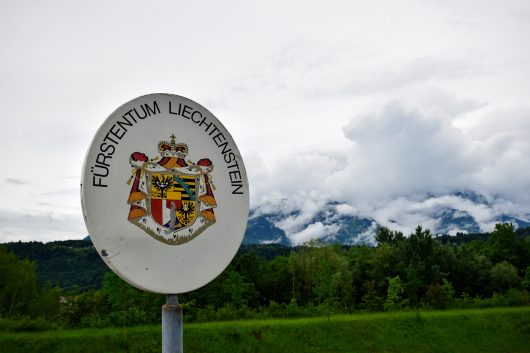10 Facts About Refugees in Liechtenstein

Located in Central Europe, nestled between Switzerland and Austria, lies the Principality of Liechtenstein. With only 62 square miles of territory and fewer than 38,000 citizens, one might assume that the country would refuse refugees, but this is not the case. Liechtenstein has willingly taken part in helping those fleeing from war-torn and oppressive regions. Here is what you need to know about refugees in Liechtenstein:
- World Data has reported that, in 2016, refugees sent a total of 52 asylum applications to Liechtenstein. A total of 39 decisions were reached.
- In 2016, 28% of all decisions reached were positive.
- As of 2015, the principality already accepted six refugee families from Syria, a sum of 23 persons.
- In 2014, Liechtenstein spent roughly $25 million on International Refugee and Migration Assistance and Development Cooperation, as well as Emergency and Reconstruction Assistance. In 2015, such expenditures were expected to increase significantly.
- Lichtenstein declared a willingness to participate in the EU relocation programs, not out of obligation, but out of its humanitarian tradition.
- The crown prince of Liechtenstein stated that, although they are willing to accept refugees, the principality must also “protect its culture.”
- Ambassador Fritsche of Liechtenstein stated that its small municipality is probably not a target for refugees because the country is not well-known. He theorized that this might be because Liechtenstein is not a full EU member.
- In 2015, it was made clear that if the principality did not allow refugees in Liechtenstein, the state would be booted out of the Dublin agreement, a cornerstone of asylum laws in the EU.
- Liechtenstein acceded to the Geneva Convention of 1951 and the Protocol of 1967, the world’s more recognized laws on refugees.
- Liechtenstein’s government protects against the expulsion of refugees in cases where their “lives or freedom” might be threatened.
Although Liechtenstein is a relatively small principality, their willingness to host refugees sets a clear example for nations around the world. Today, refugees in Liechtenstein are adjusting to a new way of life in a foreign land. In the future, perhaps they will come to call the country home.
– Shannon Golden
Photo: Flickr
